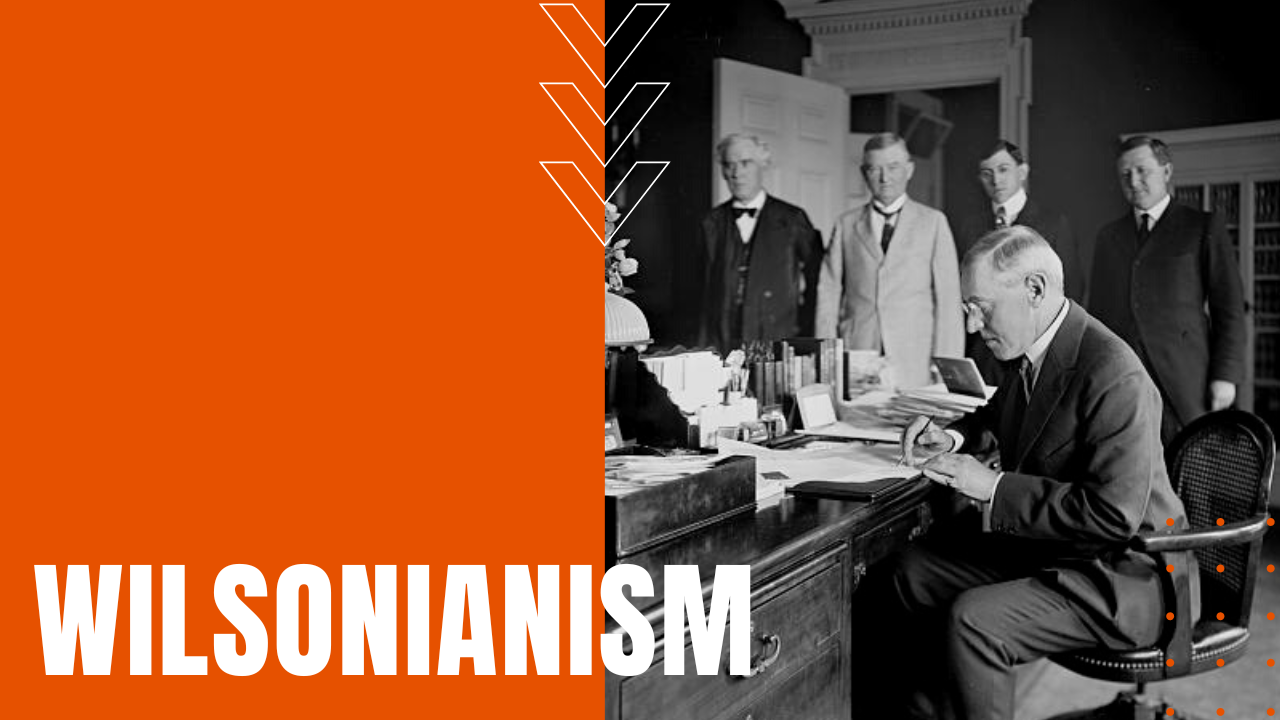Wilsonianism: Woodrow Wilson’s Post-World War I Era Geopolitics

As the horrors of World War One approached its final months of bloody conflict—taking the lives of some 40 million people—on January 8th, 1918, President Woodrow Wilson outlined his now famous 14 Points as a basis for ending the war, while promoting world peace for future generations.
14 Points Unveiled
Woven into his 14 points was a call for democracy instead of authoritarian rule, the later, Wilson believed, contributing greatly to the outbreak of the First World War. He also called for conflict resolution bodies such as the League of Nations and the United Nations, as well as an emphasis on the spread of capitalism and self-determination among nation states. Wilson also called for collective security by means of a new sense of liberal internationalism instead of isolationism, including freedom of the seas, open borders and an end to secret treaties between nations.
Respect of Sovereignty Rights
In his own words, Wilson advocated for the “general association of nations, for the purpose of affording mutual guarantees of political independence and territorial integrity to great and small states alike,” and in a later speech to Congress, that “national aspirations must be respected,” while allowing people around the world to be governed “by their own consent.”
Apostle of Freedom
Wilson’s 14 Points launched an intense wave of optimism within colonial-ruled nations in Asia, Africa and the Middle East, elevating Wilson to an almost godlike figurehead in colonial-ruled states around the world, prompting Indian nationalist Ganesh Shankar Vidyarthi to hail Wilson as “The Modern Apostle of Freedom.”
False Optimism
Optimism within colonial-ruled nations proved short-lived, however, when the June 28th, 1919 signing of the Treaty of Versailles failed to end colonial rule of first world countries over third world nations, descending citizens of marginalized countries into a communal state of disillusionment and continued despair. Some historians have suggested that, not only did the punitive demands the treaty placed on Germany lead directly to the Second World War, but the treaty’s complete rejection of Wilsonianism, as Wilson’s 14 Points are known today, led to a number of protest movements in colonial-rule nations.
Protests included the Egyptian Revolution of 1919, Mahatma Gandhi’s passive resistance movement in India, the March 1st Movement in Korea and China’s 1919 May Fourth Movement, making Woodrow Wilson’s 14 Points, a telling missed opportunity for world peace.
